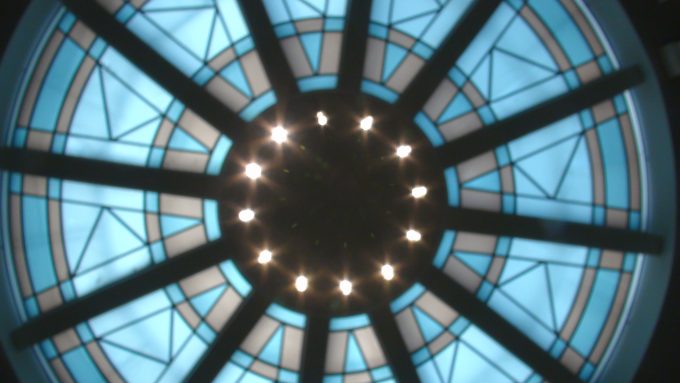
Thursday, 27 December 2018
But into the second part the high priest went alone once a year, not without blood, which he offered for himself and for the people’s sins committed in ignorance; Hebrews 9:7
The words, “the second part,” are speaking of the second and final room within the tabernacle, known as the Most Holy Place (Holy of Holies, Holiest of All, etc – based on translation). It is the room where the items of verses 9:4 & 9:5 were described. No person was allowed to enter this room, under pain of death, with the exception of the consecrated high priest. And even he could only enter “alone once a year.” This was on the Day of Atonement.
But even then, there were set restrictions on his entry into this inner room. He was never to come “without blood.” The shed blood signified that something had died in a substitutionary manner in place of the sin-filled offender. In this case, it was inclusive of all of the people in Israel, of whom he was not exempt. As it says, “which he offered for himself.”
The high priest of Israel was a sinner. He was born in sin, and he sinned in his life throughout the year. If he came into this room without blood, he would die. This is not because the blood of an animal could actually cover over his sins, but because of the typology which was pointing to Christ’s perfect substitutionary blood, which alone can truly take away sin. And so the high priest first offered for himself, and then also “for the people’s sins.”
No person was exempted from this. In Leviticus 23, further instructions concerning this day are given. There it says –
“And you shall do no work on that same day, for it is the Day of Atonement, to make atonement for you before the Lord your God. 29 For any person who is not afflicted in soul on that same day shall be cut off from his people. 30 And any person who does any work on that same day, that person I will destroy from among his people. 31 You shall do no manner of work; it shall be a statute forever throughout your generations in all your dwellings. 32 It shall be to you a sabbath of solemn rest, and you shall afflict your souls; on the ninth day of the month at evening, from evening to evening, you shall celebrate your sabbath.” Leviticus 23:28-32
These people could have actually worked, and who would be the wiser? And so it can be seen that these instructions come down to a single word for each person in Israel, which is “faith.” A person who didn’t have faith in what was occurring in the temple in Jerusalem would simply go to work or fail to afflict his soul. But a person who truly understood his deserved penalty for violating God’s law would be obedient to these precepts on this holiest day of the year. In this, it then acknowledges that their sins were “committed in ignorance.”
In other words, and as an example, King David committed adultery with another man’s wife. He further, then, had that man killed. He knew the law and he knew the penalty for it. But his sin, though understood as such, was regarded as a sin of ignorance because of his heart first having gone astray, and then his remorse over his actions when he was confronted with them. Any person who failed to have this attitude on this most holy of days would not receive atonement, because he failed to acknowledge that his sin was deserving of death. Thus, the blood of the substitute was without meaning to him.
This symbolism follows throughout the Bible. There must be a substitution for the sins people commit, or their life is forfeit. Jesus then is that Substitution. It is His blood, and His blood alone, which all of these rituals foreshadowed. Without His life in exchange for an individual’s sin, that individual’s life is forfeit; eternal condemnation awaits. Think on this and understand that you will face God either on your own merits, or on those of Jesus Christ. You will fail on your own; you will prevail in Him.
The instructions for entering this second part of the tabernacle are minutely recorded in Leviticus 16. To understand the significance of each detail of this holiest of days, and how these things point directly to the Person and work of Christ, please refer to these sermons –
https://www.youtube.com/watch?v=5KDwl9FXA28
https://www.youtube.com/watch?v=Pa5lOoxeF8I&t
https://www.youtube.com/watch?v=QZD4Gi3rR1s&t
Life application: Considering this precept in light of Christ Jesus, we can see that until someone realizes that Christ died for their sins, and then accepts that payment for what he has done wrong, it is to him as if Christ’s death was unnecessary to atone for his life. Thus, his sins are not considered as in ignorance, and he will have nothing to atone for his high-handed sin against God. His condemnation remains, and he will never enter into God’s paradise. It is only through the shed blood of Christ that anyone can enter into that Most Holy Place. Thank God that our High Priest has gone before us to accomplish this on our behalf.
Thank You, O God, for the great blessing of knowing that all sins are forgiven through Jesus Christ our Lord. If we will but look to His great sacrifice on Calvary’s cross as our Substitution, we will be saved. Without that, we stand utterly condemned in Your perfect presence. All glory is from You, for You, and to You alone! Amen.
